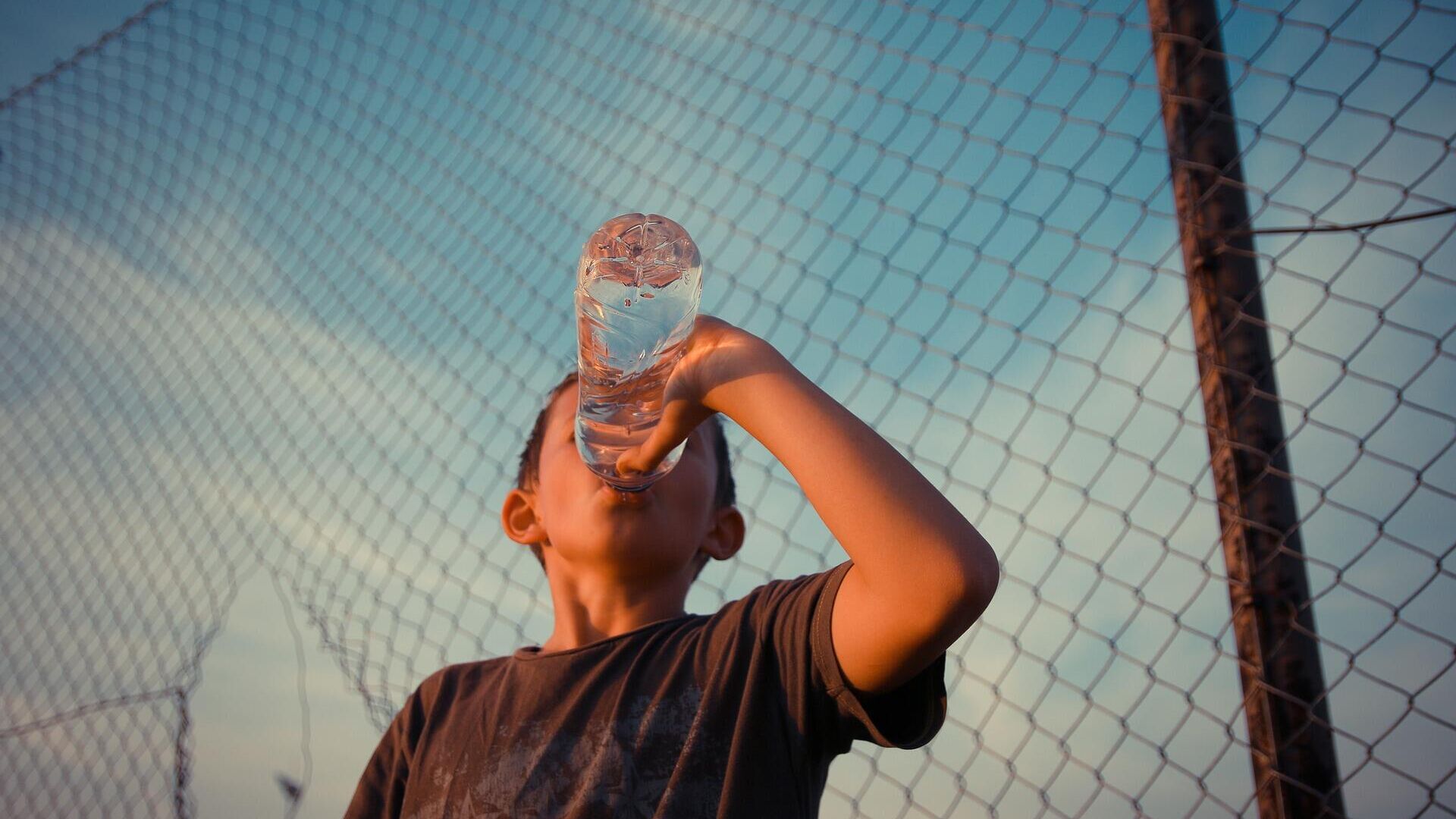https://sputnikglobe.com/20220319/is-humanity-doomed-recycled-plastic-bottles-leach-more-chemicals-than-newly-made-ones-study-says-1094006210.html
Is Humanity Doomed? Recycled Plastic Bottles Leach More Chemicals Than Newly Made Ones, Study Says
Is Humanity Doomed? Recycled Plastic Bottles Leach More Chemicals Than Newly Made Ones, Study Says
Sputnik International
Polyethylene terephthalate (PET) is one of the most used types of plastic in food packaging, including in single-use drink bottles. PET is also known to leach harmful chemicals, which can cause serious diseases such as cancer.
2022-03-19T09:48+0000
2022-03-19T09:48+0000
2022-08-06T13:35+0000
health
plastic
environment
chemicals
science & tech
https://cdn1.img.sputnikglobe.com/img/07e6/03/13/1094006166_0:100:1921:1180_1920x0_80_0_0_4ec64b236c56ca23456d27dc768f6fb0.jpg
Sad news for those who hoped that recycling plastic would protect the environment and stop pollution - a group of scientists from Brunel University London suggests that recycled plastic bottles contain more harmful chemicals than newly manufactured ones.According to their study, which examined previous research on plastic bottles conducted around the world, the researchers looked into the migration potential of 193 food contact chemicals. They established that 150 migrated from recycled bottles into food.Researchers say that contamination may have occurred as a result of contamination of the feedstock. The study, however, is not a death sentence for recycling as scientists outline ways to prevent contamination. One of them is "at the waste-management infrastructure level" and "adoption of design-for-recycling principles".A so-called "super cleaning" process, involving cleansing plastic before recycling with a high-temperature wash, a gas wash, and a chemical wash, is another way to solve the problem. At the same time, researchers note that the ultimate solution is to end the use of PET.Let's stay in touch no matter what! Follow our Telegram channel to get all the latest news: https://t.me/sputniknewsus
Sputnik International
feedback@sputniknews.com
+74956456601
MIA „Rossiya Segodnya“
2022
News
en_EN
Sputnik International
feedback@sputniknews.com
+74956456601
MIA „Rossiya Segodnya“
Sputnik International
feedback@sputniknews.com
+74956456601
MIA „Rossiya Segodnya“
polyethylene terephthalate, pet, recycled plastic bottles,
polyethylene terephthalate, pet, recycled plastic bottles,
Is Humanity Doomed? Recycled Plastic Bottles Leach More Chemicals Than Newly Made Ones, Study Says
09:48 GMT 19.03.2022 (Updated: 13:35 GMT 06.08.2022) Polyethylene terephthalate (PET) is one of the most used types of plastic in food packaging, including in single-use drink bottles. PET is also known to leach harmful chemicals, which can cause serious diseases such as cancer.
Sad news for those who hoped that recycling plastic would protect the environment and
stop pollution - a group of scientists from Brunel University London suggests that recycled plastic bottles contain more harmful chemicals than newly manufactured ones.
According to their study, which examined previous research on plastic bottles conducted around the world, the researchers looked into the migration potential of 193 food contact chemicals. They established that 150 migrated from recycled bottles into food.
"We found these chemicals can come from various sources, such as the catalysts and additives used during production and degradation during PET production, and degradation that can happen across a bottle's lifecycle", said Dr Eleni Iacovidou, a lecturer from Brunel's Centre for Pollution Research and Policy, and lead author of the study.
Researchers say that contamination may have occurred as a result of contamination of the feedstock. The study, however, is not a death sentence for
recycling as scientists outline ways to prevent contamination. One of them is "at the waste-management infrastructure level" and "adoption of design-for-recycling principles".
A so-called "super cleaning" process, involving cleansing plastic before recycling with a high-temperature wash, a gas wash, and a chemical wash, is another way to solve the problem. At the same time, researchers note that the ultimate solution is to end the use of PET.
"We all have a responsibility to bear. We need to start thinking about how to prevent the use of PET bottles in our households by investing, for example, in water filters, or large water containers and learning how to dispose of our plastic waste properly. If we reduce our consumption of PET then we will drive change further up the system. Less demand equals less production in the first place", Dr Eleni Iacovidou said.
Let's stay in touch no matter what! Follow our Telegram channel to get all the latest news: https://t.me/sputniknewsus 
